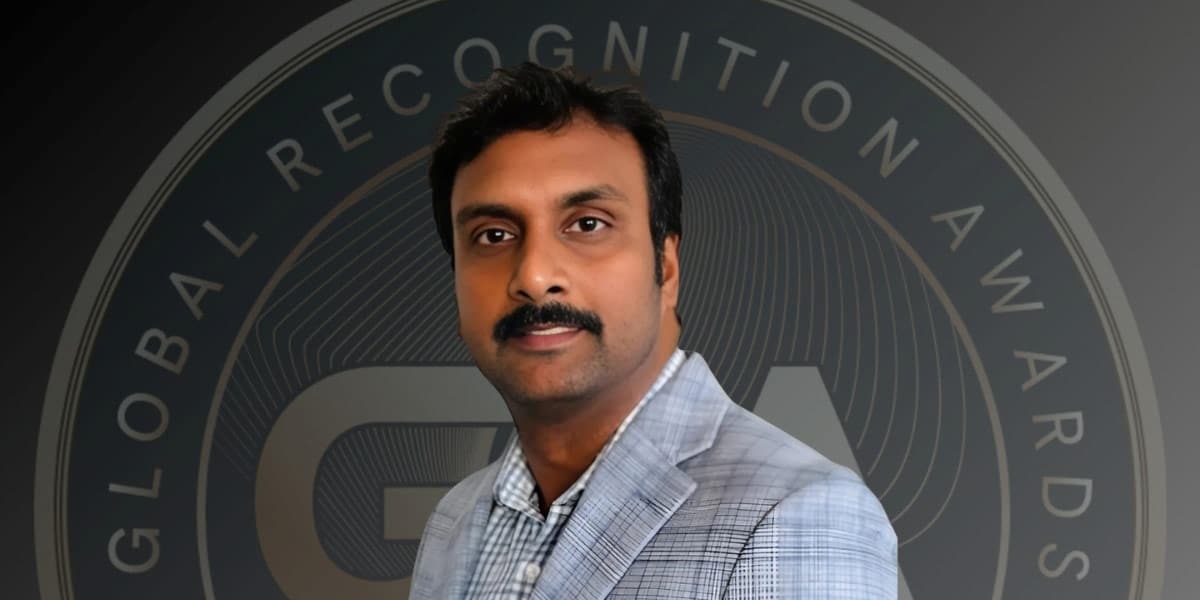By: Lily Yu
Vidya Rajasekhara Reddy Tetala brings fresh perspectives to healthcare equity in America. His work examines critical access, affordability, and care quality issues, with special attention to underserved communities. What distinguishes his approach is a deep focus on patient-centered technological innovation, built on the understanding that changing how healthcare works means putting people first, not just systems.
When speaking with healthcare professionals and industry leaders, he emphasizes a simple yet profound idea: technological solutions must begin with patients’ fundamental needs.
Tetala’s perspective reflects a notable commitment to change. It resonates with people who recognize the significant need to improve healthcare. The current system faces considerable challenges in providing high-quality care that is accessible to all. His words underscore the importance of transforming this system.
Tetala is a veteran healthcare strategist known for creating high-tech solutions with a compassionate technique. He employs a perspective that combines technical innovation with a focus on people. In a sector often criticized for prioritizing profits over people, this outlook is steadily gaining recognition in a field eager for meaningful change.
The Making of a Healthcare Leader
Tetala’s career in healthcare was shaped by nearly two decades of experience as a solution architect. His expertise lies in data management and advanced technology applications. He was motivated by a professional commitment to improving access to quality care.
“I saw firsthand how difficult it could be for people—especially those from marginalized communities—to get the care they needed,” he reflects. This realization inspired his focus on using technology to create a more inclusive healthcare system.
Over the years, Tetala has built a reputation for developing solutions that streamline data processing, improve accessibility, and enhance quality. A noteworthy example of his expertise is his leadership in a large-scale cloud migration project, where he successfully transferred petabytes of data. This monumental effort increased scalability and improved data accessibility, empowering organizations to leverage their data more effectively for decision-making and operational efficiency. This project highlighted his ability to effectively tackle complex challenges, driving him further in his mission to enhance healthcare efficiency through advancement.
Connecting Technology and Compassion in Patient Care
Tetala’s attitude toward healthcare innovation is grounded in using technology to support, not replace, human-centered care. One of his recent projects, an artificial intelligence-driven patient management tool, is designed to enhance diagnostic accuracy and improve the efficiency of patient interactions. This tool provides technology that directly serves patient needs by reducing wait times and enabling more accurate diagnoses.
He also emphasizes the importance of balancing efficiency with empathy in healthcare. “Technology is a tool, not a solution in itself,” he explains. “It’s how we use it that matters, and within the sphere of healthcare, that means creating a system responsive to individual needs.”
This focus on personalization is evident in his initiatives, such as a data-driven platform aimed at reducing unnecessary procedures and enhancing patient care. Currently piloted in select clinics, the platform uses predictive insights to streamline treatment processes, which could potentially lower patient and provider costs.
Tetala’s process for blending data analytics with clinical empathy is contributing to meaningful changes in healthcare delivery. While data and AI are central to his work, his vision goes beyond metrics. He aims to create a model where technology aids in measurable patient improvements.
“The goal is to eliminate unnecessary barriers,” he says. “Every time we remove a barrier, we make healthcare more equitable.” This patient-centered view is gaining traction among patients and industry stakeholders seeking progressive shifts in care.
This is also one of the numerous reasons he was presented with a well-deserved Global Recognition Award for his noteworthy contributions to the healthcare technology sector.
Making Healthcare Accessible
Tetala’s collaborative efforts go beyond traditional healthcare settings. He is creating a framework to benefit a broad patient base by partnering with technology firms and patient advocacy networks. “If we want to make healthcare truly accessible, we have to think beyond the walls of hospitals and clinics,” he explains.
These partnerships have allowed him to pilot new tools and gather patient feedback. Developing technology that genuinely serves patient needs is critical to his mission. By directly incorporating this feedback, he establishes that his solutions are both advanced and grounded in practical applications.
While the industry’s entrenched structures present obstacles, Tetala is optimistic about the potential for lasting change. He observes that the pandemic has accelerated the push for digital solutions in healthcare, making the sector more receptive to transformative ideas. With telemedicine, digital diagnostics, and AI-driven treatment plans gaining traction, he believes these are promising steps toward a healthcare model that serves all.
“We all know someone who has struggled to get the care they need,” he says. “That shouldn’t be the norm—it should be the exception. And it’s within our power to change that.”
Published by Tom W.









